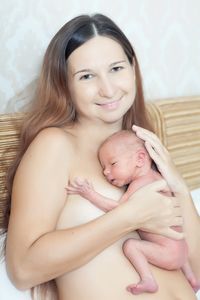An estimated 1.5 crore babies are born prematurely (less than 37 weeks of gestation) each year. This is more than a tenth of all births worldwide. Around 45 per cent of all children who die before the age of five are newborns, and more than 60 per cent of these are preterm and/or low-birthweight infants (under 2.5kg).
A lot depends on where these preterm babies are born. Studies show that most babies born at or after 28 weeks in high-income countries go on to survive, whereas, in poorer countries, survival rates can be as low as 10 per cent. Based on 203 studies from low-, middle- and high-income countries, the World Health Organisation introduced new guidelines on November 15 to improve survival and health outcomes for preterm and low-birthweight infants.
These new guidelines include 25 recommendations and one good practice statement. Among them, 11 are new and 14 are updated. One of the most crucial recommendations is that 'Kangaroo Mother Care (KMC)' for preterm or low-birthweight infants should be started immediately after birth. KMC involves infants being carried, usually by the mother, with skin-to-skin contact.
It is observed that a lot of preterm babies have problems regulating their body temperature when they are born. This is because they lack body fat, and they require medical assistance to breathe. The previous recommendation was that there should be an initial period of separation from the mother (of around three to seven days), with the baby first being stabilised in an incubator or warmer. However, based on a study published last year in the New England Journal of Medicine, WHO now recommends that KMC should start immediately after birth, as it would improve survival rate, reduce infections and hypothermia (dangerously low body temperature) and improve feeding. The study found that starting KMC immediately after birth can save up to 1.5 lakh more lives each year. The recommendation is particularly important in poorer regions that might not have high-tech equipment or reliable electricity supply.
While releasing the new guidelines, Dr Karen Edmond, Medical Officer for Newborn Health at WHO, said that during the Covid-19 pandemic, many women were unnecessarily separated from their babies, which might have been catastrophic for the health of babies born early or small. “These new guidelines stress the need to provide care for families and preterm babies together as a unit, and ensure parents get the best possible support through what is often a uniquely stressful and anxious time,” she said.


